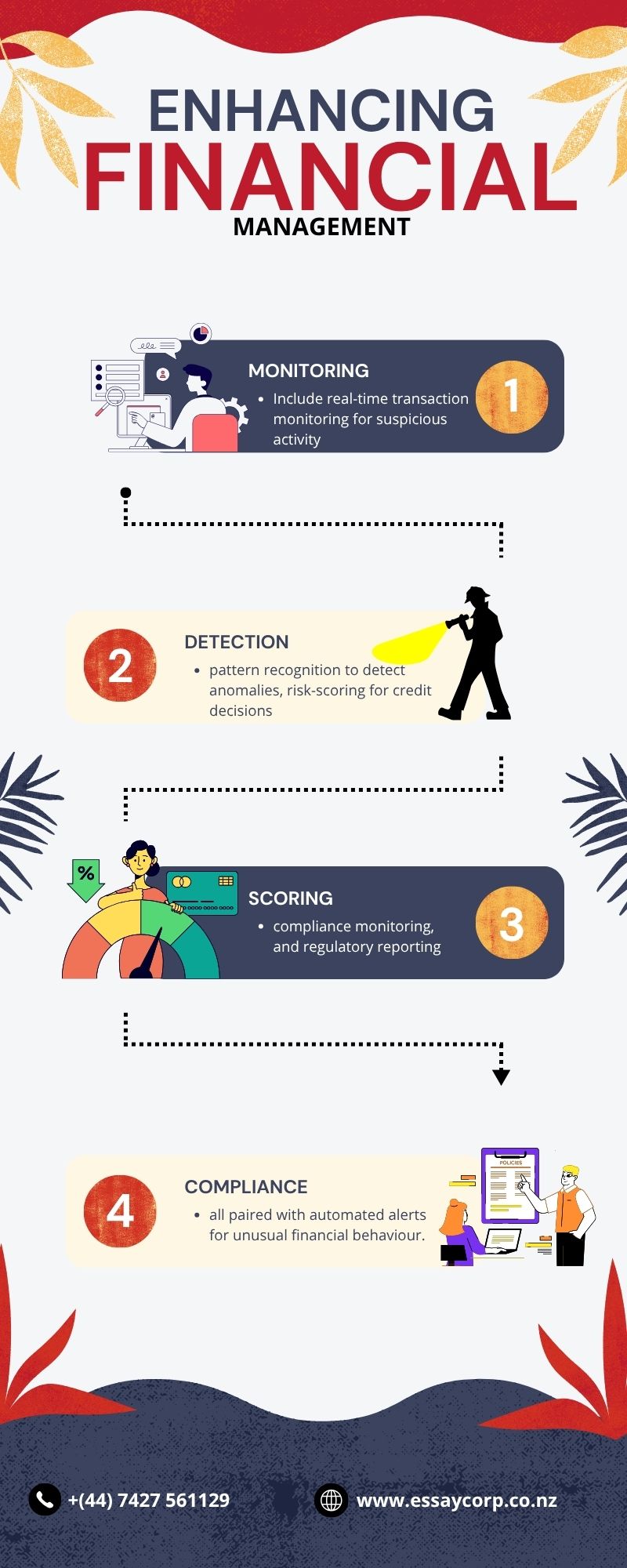The business environment has experienced a tremendous change over the last decade, with artificial intelligence now acting as a revolutionary force in management practice. A past fictional concept has now become commonplace as businesses use artificial intelligence for operating efficiencies, enhancing understanding of customers, and better decision-making. The ability to incorporate artificial intelligence to business management has resulted in overall efficiencies, delivery accuracy, and an innovation that disrupts the nature and space in which global organizations compete. Businesses implementing artificial intelligence find themselves better equipped to navigate complexities, anticipate trends, and respond to changing conditions in real-time despite their size or scope. We are witnessing the effects of the digital revolution, where artificial intelligence is not replacing human intelligence, but rather augmenting it into a holistic phenomena of creative minds collaborating with machine intelligence. Anyone wanting to remain relevant in a competitive business environment needs to understand how artificial intelligence is reshaping the practice of modern management. This transformation of management practice has implications for work across every sector of the economy, which can be seen from daily operations of business to long term planning. As such, the state of the business management future is one that will be influenced in large part by the capabilities of artificial intelligence.
Changing the Approaches to Making Decisions
Scalable Insights from Data
One of AI’s most important benefits in managing your business is the ability to apply all types of data and insights as you decide, assess and manage over time. Traditional approaches to decision-making relied heavily on gut instinct, lower-quality samples of data, and consuming methods to access key terms from a larger body of data. AI uses the benefit of processing and analysing all data and reflecting patterns across millions of data nodes and allowing decision makers to draw assumptions and clearly present actionable outcomes if facts are followed.
Key Benefits:
- Review all data points in seconds for thorough reporting
- Reveal patterns and relationships overlooked by humans
- Value quickly to support "right now" decision-making
- Reduce business risk through data-driven decision-making
- Minimize biases that humans introduce into decision-making
Forecasting Analytics for Organizational Planning
AI-enabled forecasting analytics assists organizations with anticipating market trends, customer behavior, and challenges before they happen. The future-focused approach allows management teams to create proactive strategies versus reactive remedies.
Strategic Benefits:
- Increase the accuracy of forecasts of demand fluctuations, including actual measurement
- Detect emerging trends and markets ahead of competitors
- Align resources to business opportunities more accurately and efficiently, based on climate predictions
- Identify possible obstacles and ensure contingency plans are prepared
- Optimize pricing according to the climate market conditions
Boosting Efficiency
Automating Repetitive Tasks
AI can be very effective at handling repetitive tasks in a business environment where employees have previously spent their valuable time doing such work. Automation can deliver significant operational cost reductions to a business and improve employee well-being and satisfaction by removing boring aspects of the workday. If you are a student or professional seeking help with an assignment help NZ, you will find learning about AI and its connection to business automation to be an important area in relation to your studies and professional working experiences.
Automated tasks typically involve:
- Invoice processing and accounts payable management
- Inventory tracking with alerting for orders
- Meeting and calendar scheduling
- Responding to simple customer inquiries
- Data entry and report writing
- Sorting and prioritizing emails
Supply Chain Optimization
Supply chains are extremely complex today, with varying variables influencing delivery, costs, and customer satisfaction, resulting in many variables impacting supply chain management. AI systems can continuously monitor these variables by predicting potential disruptions and providing recommended solutions. Those researching assignments help New Zealand usually investigate how AI is mediating changes in supply chains as efficient case studies of business innovation.
Development Opportunities:
- Livestock inventory observed in real-time across multiple operations.
- Ability to foresee and plan for potential interruption to the supply chain.
- Ability to reroute deliveries in real-time.
- Supplier performance analytic with recommendations.
- Ability to forecast demand in order to reduce inventory.
Modernizing Customer Experience
Personalized on the individual level
Customers now want a customized experience, and artificial intelligence is the vehicle to enable personalized at scale. AI enables businesses the ability to personalize product offers, communication and recommendations based on consumer behaviour, preferences and past purchases
Uses of Personalization:
- Personalized recommended products based on browsing usage
- Personalized marketing message based on customer interests
- Dynamic pricing based on customer segment
- Personalized email campaigns based on data on best time to send
- User interest-based content
24/7 Customer Support
The emergence of virtual assistants and catboats has revolutionized the field of customer service by offering immediate and perpetual engagement with customers. They are capable of addressing thousands of requests at the same time, resolving most issues on the spot, and passing on complicated questions to agents only when they cannot resolve them.
Support Capabilities:
- Instant responses to frequently asked questions
- Order tracking and status updates
- Basic troubleshooting assistance
- Seamless handoff to human agents when needed
- Multi-language support for global customers

Enhancing Financial Management
Detection of Fraud and Risk Assessment
An AI system can identify unusual patterns that may indicate either a fraudulent practice or a risk to a financial position. As these systems continually review transactions and financial data, they are able to raise a flag on a risk or potential problem in real-time, assisting businesses in reducing potential business losses and compliance violations.
Features of Financial Protection:
- Include real-time transaction monitoring for suspicious activity
- pattern recognition to detect anomalies, risk-scoring for credit decisions
- compliance monitoring, and regulatory reporting
- all paired with automated alerts for unusual financial behaviour.
Conclusion
The use of artificial intelligence is becoming more prevalent in the modern area of business management, from strategic planning, through to front-line customer interactions. AI is rapidly adding value to commercial life with its ability to process vast amounts of information quickly and automate tasks that may otherwise take complex human thought. Almost every commercial organization in all industries of modern business is changing the way it operates as a result of AI, including tourism. Tourism is one sector where we see a great deal of AI interface (or integration) across booking systems, personalized travel recommendations, and automation for customer service operations. We must remember however, that working with AI will create far more value and opportunity than simply utilizing AI to replace human managers. Organizations that succeed will be those that can see AI as a valuable human partner, rather than replacement for human services. Moving forward, we should not be questioning AI's capabilities in business management - we will simply grow to accept when and how often we use it. The consideration facing business leaders is not whether or not to utilize AI, but how fast and effectively they can adapt AI in their organization. Furthermore, those who can transition to AI fast and effectively will be positioned to lead in an increasingly competitive and dynamic business environment.

